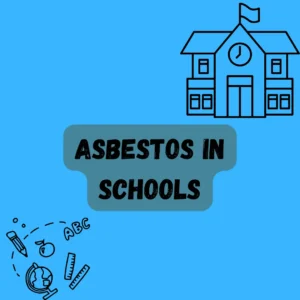This year in Pennsylvania, specifically in Philadelphia, there were numerous school closures due to asbestos being found in schools. Asbestos is a carcinogen, meaning that it has the ability to cause cancer. Inhaling asbestos can lead to health problems later in life, including the development of mesothelioma, lung cancer and asbestosis.
In the beginning of the school year, there were schools that did not reopen due to asbestos being in the schools. Frankford High School only partially reopened. Universal Vare Charter Middle School did not reopen to start the school year.

The School District of Philadelphia sued the City of Philadelphia regarding a law passed in 2022 that determined how Philadelphia managed asbestos and other hazards in school buildings. This resulted in a settlement that ensured that there would be more transparency and more inspections done.
There were six schools in Philadelphia closed due to asbestos contamination.
There are regulatory requirements that are put in place to protect students and teachers from being exposed to asbestos. There are requirements on a federal level, put in place by the Asbestos Hazard Emergency Response Act (AHERA). This act requires public schools, private schools and charter schools to comply with its regulations of inspecting their schools for anything that may contain asbestos and making management plans and taking action to either ensure there are no hazards or reducing hazards that do exist. These rules are based off of asbestos that is “in-place” and does not necessarily need to be removed as long as it is not disturbed. Those who work on anything regarding asbestos in schools must be appropriately trained through The Asbestos Model Accreditation Plan.
Based on AHERA, all public and non-profit schools must do the following:
- Make, maintain and update a plan for the management of asbestos and have a copy at the school.
- Inspect the school first to see if there is any asbestos-containing materials and do another inspection every three years.
- Give notifications to parents, teachers and employee organizations about the availability of the management plan put in place and any actions that are being planned.
- Ensure that the custodians have asbestos-awareness training.
- Make sure that anyone performing inspections is a trained and licensed professional.
- Assign a contact person.
- Periodically inspect asbestos containing-building material.
There also must be records to be kept in the Asbestos Management Plan, including but not limited to:
- When the original inspection of the school took place.
- When re-inspections are set to take place.
- A copy of any analysis that was done of a school building.
- Name, address and phone number of contact person.
It is evident that asbestos in schools, specifically in Pennsylvania schools, is a serious issue that should not be taken lightly. Exposure to even small amounts of asbestos can lead to the diseases previously mentioned and it is important that there are steps taken to ensure that students and employees are kept safe.
If you or a loved one has been diagnosed with mesothelioma or another asbestos-related disease, please call the Halpern Law Firm at (800) 505-6000. We have numerous 5 star reviews from satisfied clients. For more information, fill out our form.
Sources:
https://www.nbcphiladelphia.com/news/local/asbestos-philadelphia-schools-file-lawsuit/3617055/
https://www.epa.gov/asbestos/asbestos-and-school-buildings
Written By Sadie Gold
Don’t Wait—Contact an Experienced Pennsylvania Mesothelioma Attorney Today!
Now that you know the mesothelioma statute of limitations in Pennsylvania, contact an experienced attorney from our firm to represent your case before time runs out.
At Halpern Law Firm, we help clients throughout Pennsylvania, with offices in Philadelphia, Pittsburgh, Allentown, Scranton and Johnstown. Call us today for a free consultation at (800) 505-6000.